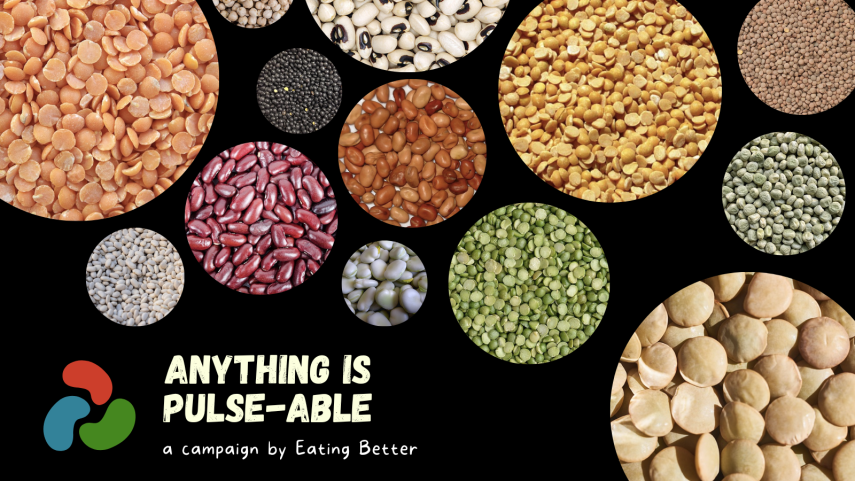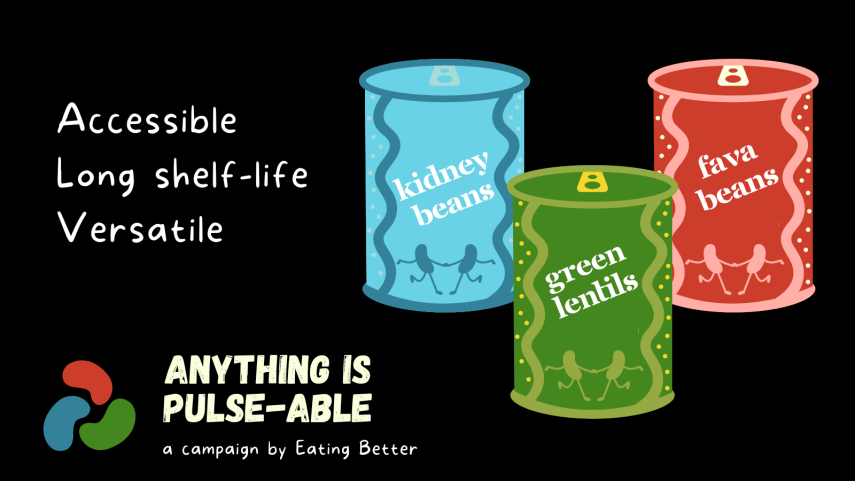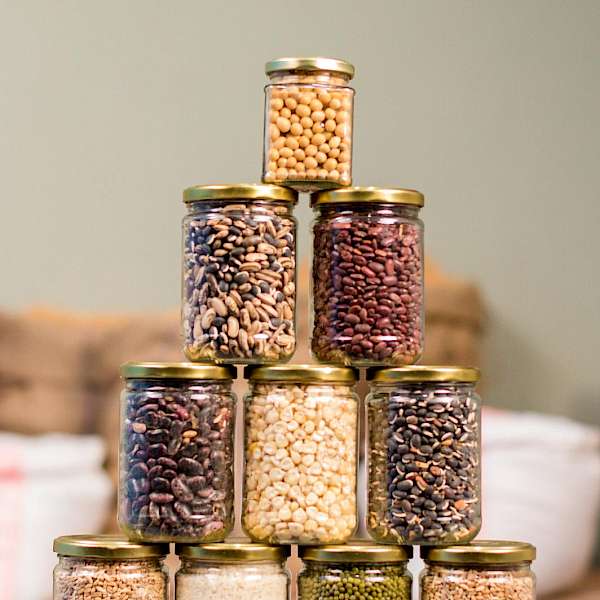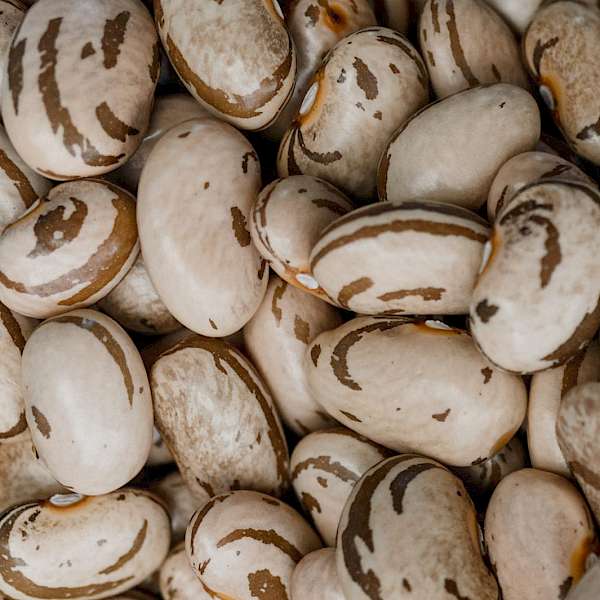Anything is Pulse-able shows how pulses are unsung kitchen heroes, full of flavour, fibre, and protein. Make pulses part of your every day and explore the endless possibilities that lentils, peas and beans offer.
Anything is Pulse-able

What are pulses?
Pulses are the edible seeds of plants in the legume family. Pulses grow in pods and come in a variety of shapes, sizes and colours.
Pulses are good for health
Just one in three adults in the UK eat five fruit and vegetables a day as recommended by the World Health Organisation. Three tablespoons of lentils, beans or peas count as one of your five and are a source of plant-based protein.
High-fibre intake from pulses has been associated with reduced blood pressure and risk of cardiovascular disease and according to the British Heart Foundation they can help lower your risk of heart disease, stroke, type 2 diabetes, and bowel cancer.
Pulses can save you money
Eating pulses can save you money. Adding pulses to your meals can bring the cost down and keep the flavour up.
Pulses are affordable and consumed across the globe. In a time of rising food prices, pulses remain affordable, are widely accessible, and we want to ensure that the current cost of living pressures do not prevent people eating healthy and sustainable diets.

Pulses have a long shelf life and are a versatile ingredient that can be used in a wide variety of dishes. On average, pulses cost less than £2 for a family of four.
Pulses are good for the environment
They directly benefit soil quality by fixing nitrogen and protecting soil microbes, reducing the need for synthetic fertilisers. Compared to animal protein sources, pulses have lower carbon and water footprints.
Pulses also positively impact food security because of their role in improving sustainability, through soil management. Soil degradation is a major threat to food security in many areas of the world. By improving the crop patterns using pulses, farmers can improve their yields and limit the long-term threat to food security that soil degradation represents.
Compared to other sources of protein, plant proteins produce very low levels of GHG emissions. Producing 1kg of beans, one of the most commonly consumed pulses, emits around 2kg of CO2e. In comparison, 1kg of beef from a non-dairy herd produces 100kg of CO2e. Even chicken, which on average is the lowest emission meat, produces 10kg CO2e per kilogram.
Cooking with pulses
From Lebanon to Brazil, France to Singapore, there are pulses being cooked in every corner of the globe. Whether it's a creamy hummus or a spicy Caribbean stew, here are some ideas of how to get creative in the kitchen.









